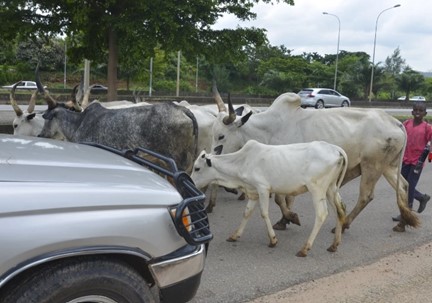
Abubakar, like many Fulani herders, is part of a traditionally nomadic community that has dominated West Africa's cattle industry for generations. These herders once relied on vast, undeveloped lands for grazing, but the pressures of modernization and climate change have severely limited their options. As more land is converted for housing, agriculture, and infrastructure, the herders are finding it increasingly difficult to sustain their livelihoods.
Baba Ngelzarma, president of the Miyetti Allah Cattle Breeders Association of Nigeria, highlights the struggle facing these pastoralists. He points out that while Nigeria boasts the fourth-largest cattle population in Africa, the industry remains inefficient, with nearly 90% of local dairy demand being met through imports. Ngelzarma argues that the government has failed to harness the potential of the livestock industry by not providing necessary infrastructure like water sources, veterinary services, and grazing reserves.
The Nigerian government has acknowledged the issue, with President Bola Tinubu announcing a new livestock development ministry in July. The ministry is intended to address these challenges by reviving abandoned grazing reserves, though no minister has yet been appointed to oversee the initiative.
The consequences of this lack of planning are evident in Abuja, where the presence of cattle on busy roads is a frequent cause of traffic delays. In addition to the urban disruptions, tensions between herders and farmers over land use have often led to violence, particularly in central and southern Nigeria.
There are designated grazing reserves around Abuja, but these areas are poorly maintained and have been encroached upon by other settlers. As a result, herders like Mohammed Abbas have been forced to move repeatedly, with each new location eventually being claimed by developers or landowners.
Some herders, however, are refusing to move. Hassan Mohammed, whose family has settled on a small strip of land near the Idu train station, says they have nowhere else to go. Despite repeated orders to vacate, his family continues to use the land as a base while seeking pasture elsewhere.
Real estate developer Folawiyo Daniel argues that the root of the problem lies in poor urban planning. He and others in the industry believe that the government should create designated grazing areas within the city to accommodate the herders.
The herders themselves are not opposed to change. They are open to adopting a more modern approach to cattle rearing, including purchasing their own feedstock and limiting their grazing to specific areas. However, they argue that the government must first provide the necessary support, such as infrastructure for water and fodder production, as well as veterinary services.
Without such support, Ngelzarma warns, the cycle of displacement and disruption will continue. He calls on the government to revive and properly equip the grazing reserves, thereby creating jobs and revenue for the sector. Only then, he argues, can the herders be expected to stop roaming the streets in search of pasture.